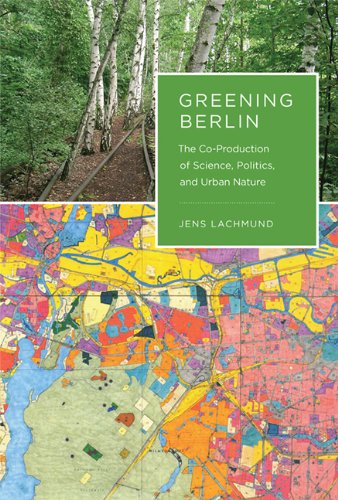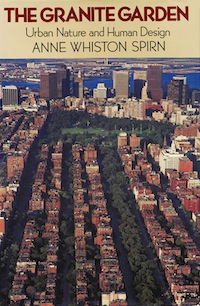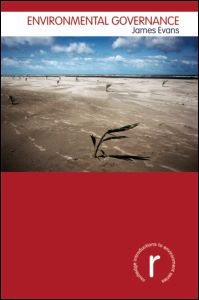Histories and Futures of Contested Urban Natures
Book workshop in Stockholm 12-14 June 2013
Tid: On 2013-06-12 kl 09.00 - Fr 2013-06-14 kl 17.00
Plats: KTH and Lidingö

Top international scholars will visit KTH in the second week of June 2013 for the second workshop on a longer book project on the Histories and Futures of Contested Urban Nature. Environmental historians, anthropologists and political ecologists will give focused talks towards this unique book project that aims to comparatively explore how key urban regions around the world—from Africa, Americas, Australia, Asia and Europe—have debated, contested, protected and maintained parks, urban forests, nature protected areas, or more generally 'green space' and 'functional ecosystems' across time.
The workshop is organised by (KTH) and Henrik Ernstson (Stockholm Resilience Centre; University of Cape Town) and follows the initial workshop to discuss the book that took place on 17 October 2012 in Cape Town. Please join the discussions during the public part of the workshop, on June 12 on KTH main campus.
Overview of programme
12 June
Public lectures in the morning at KTH main campus. Invitation Seminar 12 June Contested Urban Natures .pdf (pdf 678 kB)
13-14 June
Talks and discussions at Brevik conference facility, Lidingö. The workshop finishes at lunchtime on the 14th.
In tandem with the workshop, a PhD course on Urban Ecology - as Science, Culture and Power is organised at KTH 10-14 June.
About the book
The book aims to include chapters from different regions on how 'urban nature' has been articulated as of value, what expertise has been drawn upon through time, what social, cultural and political projects that the protection of nature have been part of, and what technologies that have shaped the notion of 'nature' and the notion of 'value' in different locations over time.
About the participants
Speakers include distinguished Professor Emeritus Richard A. Walker , environmental historian and geographer from University of California, Berkeley, USA, with extensive research on San Francisco and California, including books such as The Conquest of Bread (2004) and The Country in the City (2007), The Capitalist Imperative (1989) and The New Social Economy (1992).

Jens Lachmund is a sociologist who has specialized in the social studies of science, technology, and the environment. After his graduation in sociology (University of Bielefeld) he worked in different research projects at the University of Bielefeld. After positions at the Hamburg Institute for Social Research and the Max Planck Institute for the History of Science (Berlin) he moved to Maastricht University, where he took a position as a lecturer (universitair docent) in Science and Technology Studies.
Associate Professor Amita Baviskar from India's Institute of Economic Growth in Delhi, with work on the cultural politics of environment, development, resource rights, subaltern resistance and more recently on Delhi's 'bourgeoisie environmentalism' and changing food practices. She has edited several books, including Contested Grounds: Essays on Nature, Culture and Power (Oxford University Press).
Jia Ching Chen is an urban, development, and environmental studies researcher at University of California, Berkeley. Currently his interests are in China's role in shaping the global green economy and the spread of Chinese planning expertise through its international development activities. He also has professional experience in social movements and organized labor.
Since 2011 Lindsay Sawyer is PhD researcher for Module V: Urban Sociology (with Dr. Ozan Karaman, Naomi Hanakata and Tammy Wong) of the FCL (Future Cities Laboratory) based in Singapore at the SEC (Singapore-ETH Centre). Research case study and subject of PhD is Lagos, Nigeria (primary supervisor Prof. Christian Schmid).

Books by Anne Whiston Spirn include The Granite Garden: Urban Nature and Human Design, which won the President’s Award of Excellence from the American Society and The Language of Landscape. She is director of the West Philadelphia Landscape Project — integrating teaching, research, and community service — cited as a “Model of Best Practice” at a White House summit in March 1999 for forty leading “Scholars and Artists in Public life.” Spirn has received fellowships from the Woodrow Wilson Center, Bunting Institute, California Humanities Research Institute, and NEA.
The primary research interests of Associate Professor Lisa Hoffman include subject formation processes, urban and spatial transformations with governmental/economic changes, and the emergence of new techniques and forms of governing. China has been her main research site, with major projects on the emergence of urban professionals, processes of rural urbanization, and recent discourses of green urbanisms. Her current project examines new modes of solving social problems in the city, specifically volunteerism, philanthropy, and corporate social responsibility in urban China.
Lise Sedrez teaches at Instituto de História, UFRJ, Brazil. She was until recentely an Associate Professor at the History Department at California University, Long Beach. She is the co-editor of the book series Latin American Landscapes with the University of Arizona Press. She holds a M.S. in Environmental Policy Studies, from New Jersey Institute of Technology, and a Ph.D. in History from Stanford University, where she was awarded a Lieberman Fellowship for excellence in teaching.

James Evans is a Senior Lecturer in Environmental Governance in the School of Environment and Development at the University of Manchester. He has an abiding interest in the role science plays in transforming urban space, particularly the ways in which environmental knowledge is produced and used in decision-making. He is currently leading two projects exploring these issues in relation to resilience and living laboratories.
Joshua Lewis studies how cities and other human-dominated landscapes emerge and are transformed through linked socio-political and ecological processes. His field work is based in New Orleans and the lower Mississippi River Delta, where before joining the Resilience Centre, he was a Research Analyst at Tulane University.
Anna Storm is a postdoctoral researcher at the Department of Human Geography at Stockholm University. As a doctoral candidate Anna participated in a Nordic-Baltic research school focusing industrial heritage and societal transition, primarily in Sweden and Latvia. In 2006, she was awarded the Joan Cahalin Robinson Prize at the SHOT Annual Meeting for best presentation, and her doctoral thesis "Hope and rust: Reinterpreting the industrial place in the late 20th century" was awarded the ICOHTEC Publication Prize for Young Scholars 2009.
Lance van Sittert is at the Department of Historical Studies at UCT and specialises in tracing African environments and their constitutive elements as shifting terrains of social construction and contestation over time. He has published on how fynbos vegetation in and around Cape Town emerged as a social construct and as part of amateur, nationalist and class projects.
Andrew Karvonen a Lecturer in Architecture and Urbanism in the Manchester Architecture Research Centre (MARC) at the University of Manchester and a co-director of cities@manchester. I also serve as a visiting research fellow at the Center for Sustainable Development at the University of Texas at Austin where I completed my Ph.D. in Community and Regional. My research bridges the design disciplines and the social sciences with a particular focus on urban sustainability. I also have a decade of experience as an environmental and sustainability consultant and am a licensed engineer in the State of Washington.
Henrik Ernstson has published on the politics and management of urban ecologies and leads two collaborative projects with co-PI's between ACC and the Stockholm Resilience Centre—Ways of Knowing Urban Ecologies and Socioecological Movements in Urbanized Ecosystems. Environmental historian is from the KTH Environmental Humanities Lab at the Division of History of Science, Technology and Environment in Stockholm with several books and articles. Together Ernstson and Sörlin are exploring how to draw upon historical research and actor-network theory (ANT) to understand processes of value articulation with local case studies from Cape Town and Stockholm, paired with studies of international networks of value articulation around the notion of 'ecosystem services'. See publication list here.
The workshop is organized by:
KTH Environmental Humanities Laboratory in the Division of History of Science, Technology and Environment, KTH; the African Centre for Cities, University of Cape Town, and Stockholm University.

